Bill Regulating Family Pension Beneficiaries' Status on Parl. Agenda
ZAGREB, 6 July, 2021 - The Croatian Pension Insurance Institute (HZMO) said on Tuesday that the number of pension insurance contributions had been on the rise for five months in a row, and the number of insurees was higher by 3.54% at the end of this June compared to June 2020.
The government-sponsored amendments were forwarded to the parliament at the session of the Andrej Plenković cabinet on 1 July.
In May, there were 216,000 family pension beneficiaries, and most of them were surviving spouses whose average monthly pension allowance was HRK 2,096, which was below the average pension. For instance, in May, pension associations reported that the average pension paid out for February stood at HRK 2,567.
The budget allocation for this purpose has been ensured for 2022 and 2023.
According to the government's estimates, this year, an estimated 1,100 recipients of family pensions can exercise this right to work part-time and continue receiving family pensions. In 2022, the numbers can rise to 3,200 and in 2023 to 4,100 beneficiaries.
(€1 = HRK 7.484635)
For more about politics in Croatia, follow TCN's dedicated page.
Vaccination Prerequisite for Croatian Economic Aid to Companies?
July the 3rd, 2021 - Vaccination against the novel coronavirus, SARS-CoV-2, although not mandatory, might well be required before companies can receive Croatian economic aid if it can be implemented constitutionally.
As Poslovni Dnevnik writes, Prime Minister Andrej Plenkovic stated that he thinks it would be fair that in a time of crisis, when the state provides vaccines and salaries for the normal functioning of the entire system, for everyone to make some form of small contribution to the effort.
"If someone is going to be a beneficiary of the Croatian economic aid, let's say job preservation support, then it would be good for them to be vaccinated,'' said the Prime Minister, but without adding further details on just how government economic support will be linked to vaccination.
The ministers of labour and health, Josip Aladrovic and Vili Beros, have now been tasked with specifying measures to be taken by the Croatian Employment Service to link the two processes.
For the moment, this is just an idea announced by the Croatian Government, it's possible that it will be legally and constitutionally difficult to implement, and for now it looks like pressure to workers in those sectors which had to be closed during lockdown, to get vaccinated. However, the Prime Minister said recently that a solution would be sought that would be legal and constitutional, Jutarnji list writes.
"We can't have unlimited government economic measures because the whole of Europe is moving in the direction of job creation, but there are still sectors, such as the catering and hospitality sector, which has partial restrictions, and those that have no restrictions, but are affected because they're objectively disabled, such as transport, tourism, the event industry. Our task now is to engage in dialogue with employers and move on to tailored sectoral measures. So, it isn't just going to be towards everyone as it was before,'' the Prime Minister explained after a recently held Government session.
Until the end of the year, the measure of reduced working hours is set to remain in force. Plenkovic noted that in agreement with the representatives of employers, trends will be monitored and responded to in time if necessary, which will keep pace with active employment policy measures, and in which more than a billion kuna will be invested this year.
Recently, the government also adopted a support programme for vulnerable activities in the sectors of transport, tourism, culture and the event industry. It is actually a reimbursement of fixed costs that these activities didn't have before because they weren't formally closed by the decision of the National Civil Protection Directorate, but suffered heavy losses regardless.
The grants are worth a total of 150 million kuna, and the amount is provided by the budget revision. Those who have recorded a drop in revenue of at least 75 percent compared to 2019 will be able to apply for this form government economic support. In the transport sector, fixed costs will be reimbursed to companies for land and sea passenger transport, as well as to travel agencies and tour operators related to nautical transport. In the tourism sector, the support refers to travel agencies, up to a maximum of 10,000 kuna per worker.
In the event industry sector, companies that organise festivals, concerts and similar cultural and artistic events, as well as events intended for professionals in the field of cultural and creative industries, are eligible, Jutarnji list has learned.
For more, follow our business section.
Highlights of the Week: 5 Big Events in Croatia from June 28-July 4
June 3, 2021 - TCN's highlights of the week. A look at the events in Croatia from June 28 through the selection of TCN's reporter Ivor Kruljac.
EURO 2020 elimination and Dario Šarić in the NBA finals. Zagreb witnessing a series of arrests related to corruption of Milan Bandić's reign and explosive device planted in Split. In the midst of it all, is COVID-19 vaccination on its way to becoming obligatory and not optional? You may prefer the good news or the bad news, but here is both, as another week in Croatia comes to an end.
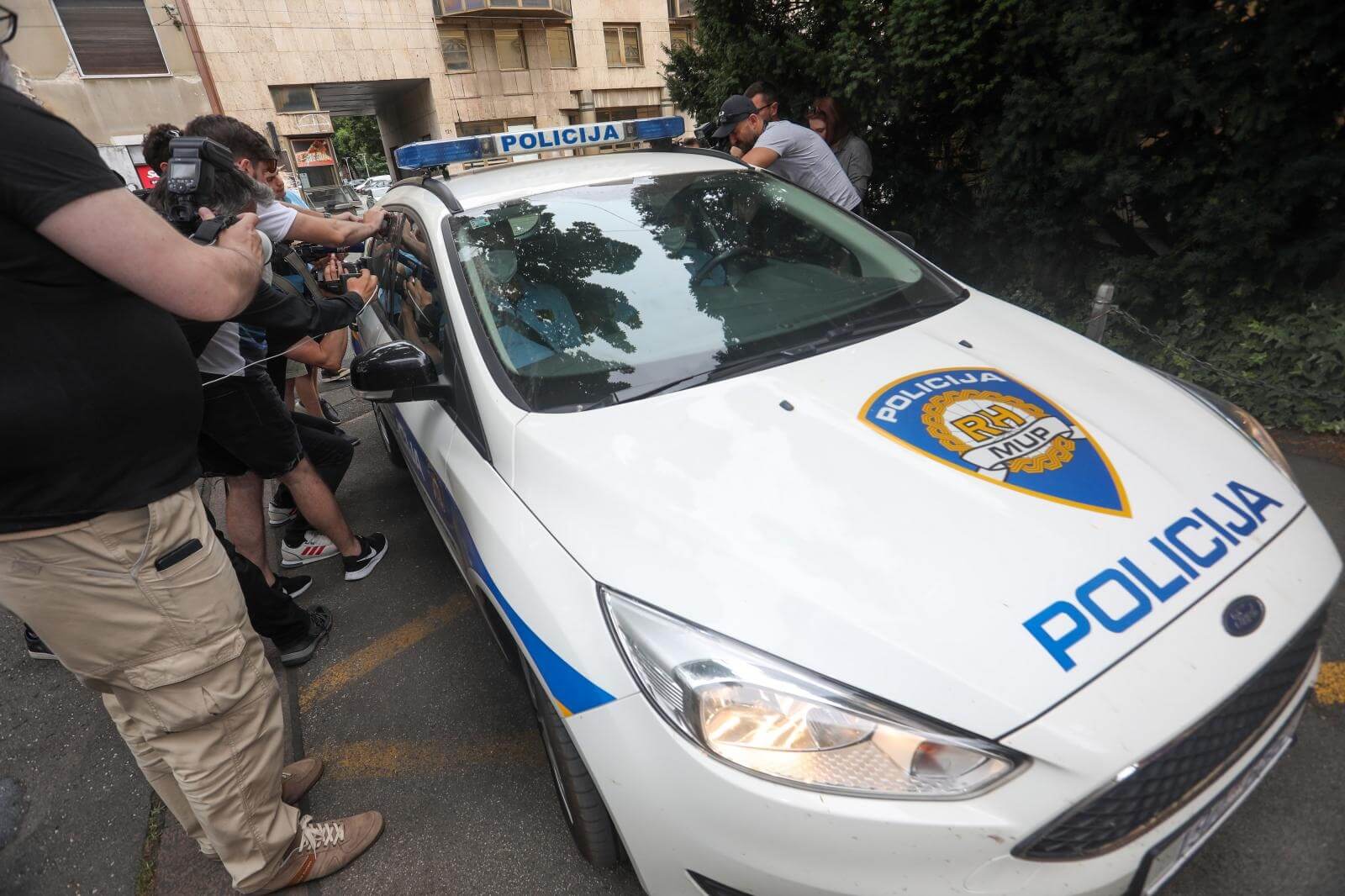
© Marin Tironi / PIXSELL
Highlights of the week: Uskok arresting Zagreb entrepreneurs and associates of former mayor Milan Bandić
The Office of Zagreb Mayor Tomislav Tomašević said on Wednesday that a preliminary investigation by members of the Office of the Chief State Prosecutor and the Office for Suppression of Corruption and Organised Crime (USKOK) started at the city administration offices at 6 am on Wednesday.
As TCN wrote, several people were arrested on suspicion of corruption, including the director-general of the HRT public broadcaster, Kazimir Bačić, Andrea Šulentić, and Ana Stavljenić-Rukavina. Both Šulentić and Rukavina were directors in Zagreb administration offices and close associates of former mayor Milan bandić. At the same time, details Bandić's heavy corruption (suspected and known publicly earlier) came to light.
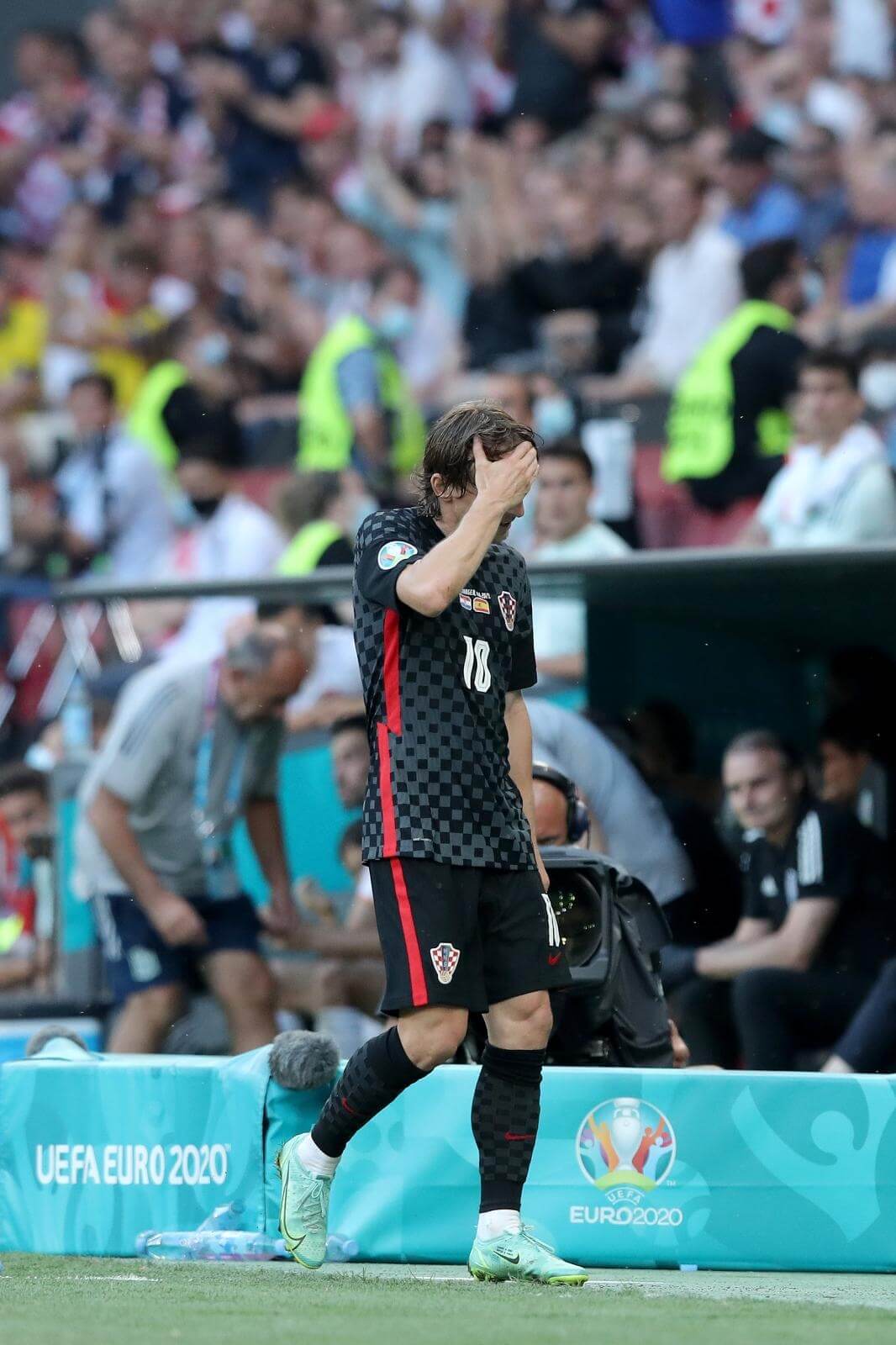
© Goran Stanzl / PIXSELL
Highlights of the week: Croatia eliminated from Euro 2020 after losing to Spain
Croatia and Spain met in Copenhagen on Monday for their EURO 2020 round of 16 match. It was a decent effort from Croatia, but not enough. Despite the Spain own goal in the 20th minute, the distraction as Rebić went to change his boots saw Spain even the score. The score towards the end of regular time went to 3:1 for Spain, but Croatia managed to lower to 3:2 and finally, in the added time, Pašalić scored for 3:3.
But, the euphoria was ruined for Croatia as in extra time, Morata earned Spain 4:3, and by 103rd minute, the total and final score was 5:3 for Spain. It was one of the more intense games on Euro so far as both teams show incredible spirit and persistence.
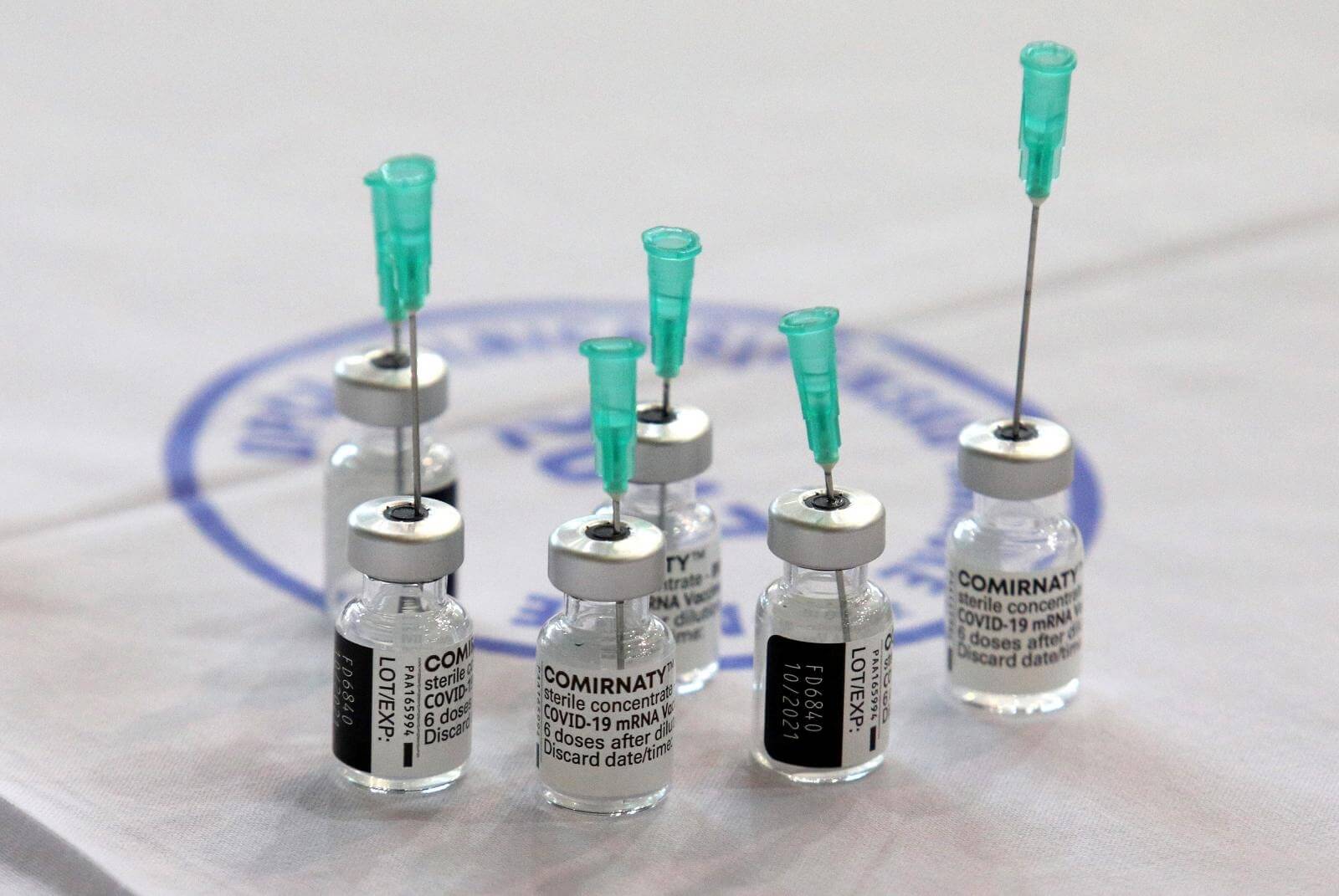
© Dusko Jaramaz / PIXSELL
Highlights of the week: Opposition parties against vaccination being required for job-keeping payments
The Social Democratic Party (SDP) called on Prime Minister Andrej Plenković on Thursday not to make vaccination a requirement for job-keeping payments, while the Most party said business owners were being blackmailed into vaccination.
As TCN reported, SDP leader Peđa Grbin elaborated his dissatisfaction via social networks.
"In Croatia, mandatory vaccination is possible, but the obligation is first established under the law on the protection of the population and then regulated and worked out under Immunisation Rules and the Mandatory Vaccination Programme. The obligation of vaccination can't be imposed in another way, notably not by linking support for entrepreneurs with vaccination," SDP president Grbin posted on Facebook.
"Most is against entrepreneurs, who are being forced into vaccination through blackmail, saving the government's mindless epidemic policy", stated the Most party on its official Twitter account. They added that Croatia was stuck with over 300,000 surplus vaccines because of poor government moves and communication omissions.
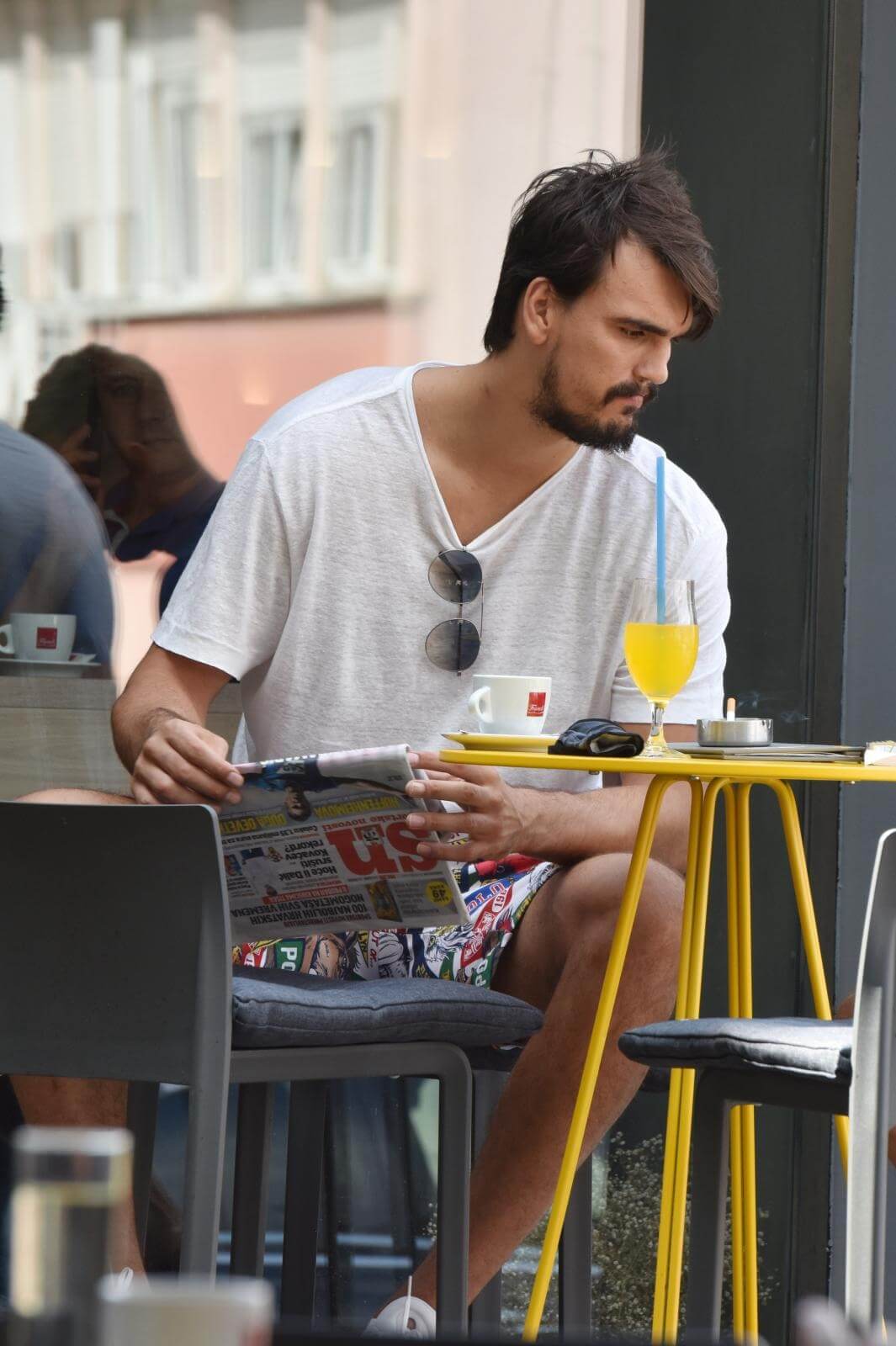
© Hrvoje Jelavic / PIXSELL
Highlights of the week: Dario Šarić becomes 5th Croatian basketballer in the NBA finals
Šibenik's Dario Šarić is the 5th Croatian basketball player to reach the NBA finals! As TCN wrote, Šarić became only the fifth Croatian basketball player in the NBA league finals, joining the company of Dražen Petrović, Toni Kukoč, Žan Tabak, and Ante Žižić. Šarić plays for Phoenix Suns. They topped the Los Angeles Clippers 4-2 in the NBA Western Conference Finals. Apart from basketball, Šarić also likes to enjoy sipping coffee on Šibenik cafe terraces, as portrayed in the photo.
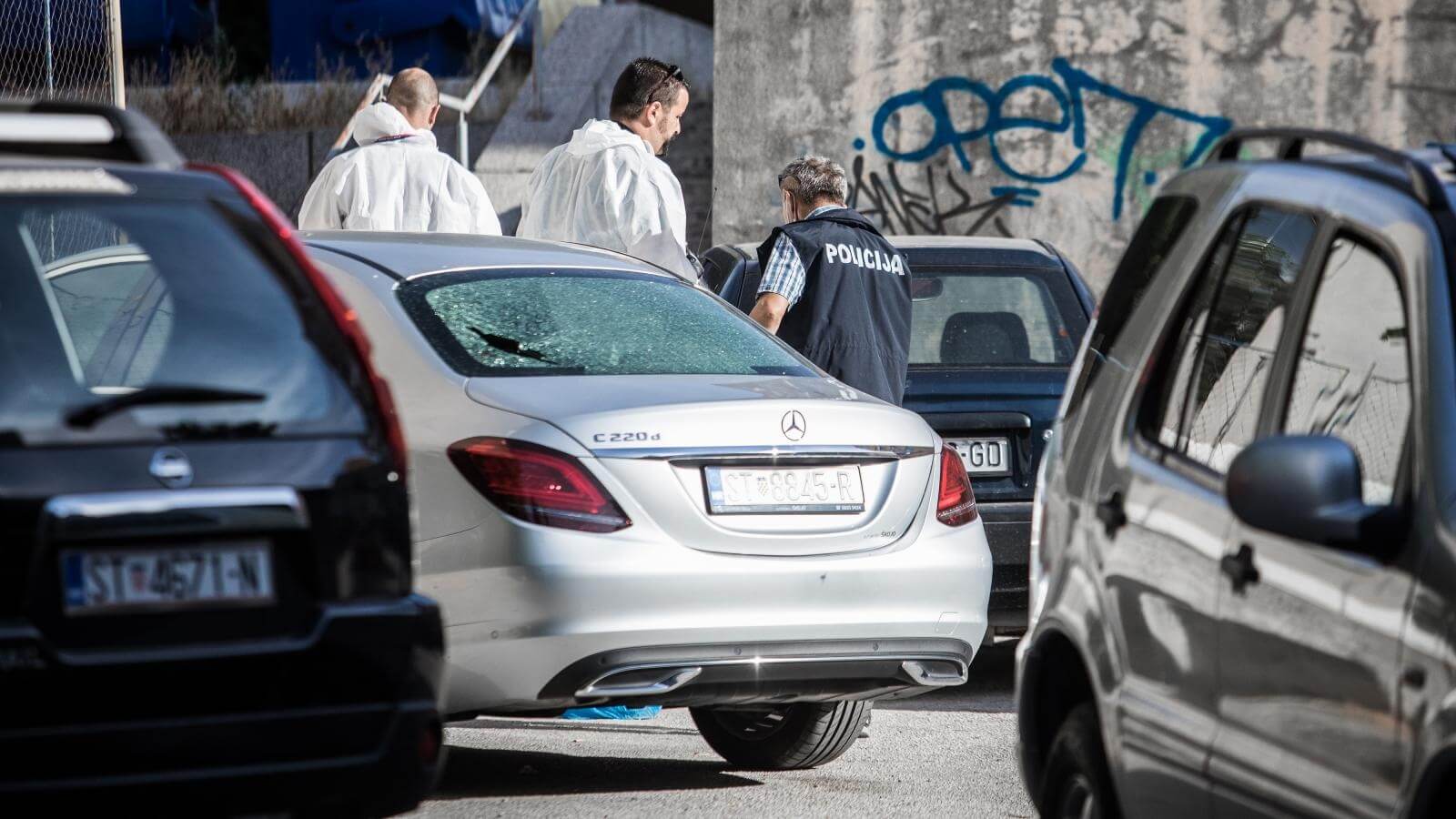
© Milan Sabic / PIXSELL
Highlights of the week: Bomb planted in Split. One person injured
In the night from Thursday to Friday, an unknown person placed an explosive device underneath a vehicle. The explosion damaged six cars, and one person required medical attention. The investigation is ongoing since Friday morning.
To learn more about Croatia, have a look at our TC website.
For more about news in Croatia, follow TCN's dedicated page.
Construction of Regional Training Centre for Firefighters Inaugurated
ZAGREB, 30 June 2021 - Construction works on a regional training center for fire-fighters were inaugurated in Brčići in the Vučevica area on Wednesday as part of the Firespill project, which is part of the Italian-Croatian cross-border cooperation program.
The HRK 120 million project is financed with EU funds, including 65 million envisaged for projects in Split-Dalmatia County, Croatia.
Inaugurating the works, Prime Minister Andrej Plenković said the government gave the land on which the center was being built, thereby contributing to the development of that area.
He said Brčići was a good location as it was close to the Operational Fire Command in Divulje, the main fire command in the country, and that he was "confident it is another good example of utilizing European Union funds."
Plenković said the new training center for firefighters was an important project for Split-Dalmatia County and all of Croatia was it would raise fire-fighting to a new level.
He said his cabinet had strengthened fire-fighting and that Fire Chief Slavko Tucaković managed an annual budget of HRK 450 million.
For more news in Croatia, click here.
MP Sandra Benčić (Možemo!) Says PM Plenković Boasting About Salvaging Economy While Destroying Factories
ZAGREB, 30 June, 2021 - The situation at the Orljava clothing factory in Požega, whose workers have not received wages for three months, shows that PM Andrej Plenković is destroying state-owned companies while boasting that he is salvaging the economy, MP Sandra Benčić said in parliament on Wednesday.
"The Prime Minister is boasting about salvaging the economy in the COVID-19 crisis while at the same time the state is destroying its own companies," Benčić, an MP of the Green-Left Bloc said, noting that the state's lack of interest in talks with protesting Orljava workers seemed to be an introduction in the company's bankruptcy to result in its partition.
Workers' Front MP Katarina Peović called for solidarity with Orljava workers.
"This is yet another case in which a company is being destroyed so that it could be sold," she said, stressing that Orljava was a state-owned company and wondering about the reason for the government's "irresponsible behaviour towards the company and its workers".
Croatian Sovereignists MP Željko Sačić stood up for Pula Faculty of Medicine Dean Krešimir Pavelić who was replaced on Tuesday after publicly stating his position on vaccination against COVID-19.
Sačić said he would request an explanation from the science and education minister and the competent institutions about why and under which circumstances Pavelić was replaced.
He noted that Pavelić's view was based on statistical and scientific data and that he expressed concern about side effects and harmful consequences of individual COVID-19 vaccines, adding that one should put a stop to "totalitarian and undemocratic treatment of different opinions."
For more about politics in Croatia, follow TCN's dedicated page.
PM Andrej Plenković: SDP Interpellation Won't Pass, They Must Pretend They Are Doing Something
ZAGREB, 29 June, 2021 - Prime Minister Andrej Plenković said on Tuesday the Social Democratic Party's interpellation on the government's slowness in post-earthquake reconstruction would not pass, adding that in the SDP "they have to pretend they are doing something" after losing in local elections.
Speaking to the press in Petrinja, Plenković said he had not seen the interpellation but that "when someone loses so badly in local elections, when they have a 13% rating, they have to pretend they are doing something." He added that parliament would reject it.
Plenković visited Petrinja to see the demolition of buildings damaged in December's earthquake and meet with the task force dealing with its consequences.
He said that when the reconstruction law was being passed, he said he wished to incorporate in it all constructive ideas and that no prior law included so many proposals from the opposition.
He said interpellations like the SDP's one did not serve to improve something but to show distrust in the government.
In the interpellation filed today, the SDP asks for urgently amending the reconstruction law, including local government in discussions about it, and informing the public more transparently, among other things.
Asked who was responsible for the fact that 150 damaged buildings had been torn down in the Banija region since the December 2020 earthquake and only three in Zagreb since the March 2020 quake, Plenković said the goal in Zagreb had been to first provide institutions that would be in charge of the whole process, then financing, and cooperation between the state, the city and the quake-affected counties around Zagreb.
He said the processing of reconstruction applications in Zagreb was "somewhat slower" than expected but that property-rights relations in the capital were "even more complex" than in Banija. "We tasked (Construction) Minister Horvat with accelerating all processes and I expect all who should help him in that to contribute."
He said Reconstruction Fund head Damir Vanđelić must be propulsive, notably regarding the reconstruction of private houses and buildings.
Citizens should be responsible and contribute by getting vaccinated
Asked if Croatia would have to resort to COVID-19 vaccination incentives, like some countries that have announced financial rewards, Plenković asked whether that meant "bribing people to be vaccinated?"
"What will we give to the 44% who have been vaccinated? If we give HRK 100 to someone who hasn't been vaccinated but is waiting and calculating, what about the million and a half who have been vaccinated? Give them money retroactively?"
Plenković said people were "fully informed" about all key matters and that every citizen had the responsibility to contribute to society by getting vaccinated.
Recalling the number of COVID deaths, he said everything should be done to motivate people to be vaccinated, adding that Croatia had 670,000 doses available.
If they were administered, he said, "we would practically solve all problems" and stop the virus from spreading. He said it was a matter of common sense and that, perhaps, young people should be motivated to attend concerts and big events with COVID certificates.
Asked what message inconsistencies in enforcing COVID restrictions sent to those undecided on vaccination, Plenković said that "everyone who is responsible will contribute, who isn't, won't."
He said Croatia had been applying mild restrictions out of respect for its citizens, considering them smart and responsible. He said the Croatian mentality would not accept tough restrictions. "We didn't decide in vain that we would not be a country with a curfew. That wouldn't have been well-accepted and I think we did the right thing."
For more about politics in Croatia, follow TCN's dedicated page.
Plenković Expects Croatia To Enter Eurozone In Early 2023
June 25th, 2021 - Croatia expects to join the eurozone in early 2023 and plans to meet all the requirements by then, Prime Minister Andrej Plenković said in Brussels on Friday.
He is attending a two-day EU summit which today will include a eurozone summit.
"That's an opportunity for me to state once again our willingness to meet all the criteria and, after entering the Exchange Rate Mechanism last year, to meet the action plan and create the prerequisites for Croatia to become a member of the eurozone during 2023, hopefully at the beginning," Plenković told reporters.
At the eurozone summit, he said, he will present the timetable Croatia expects regarding accession "given all the achievements in implementing the euro introduction strategy since 2018."
Member states' leaders began the second day of the EU summit by discussing economic recovery from the effects of the pandemic.
Plenković said he expected the Commission to approve Croatia's recovery and resilience plan in July, after which Commission President Ursula von der Leyen would come to Zagreb to personally give the Commission's the green light for the 6.3 billion worth grant plan.
For more about politics in Croatia, follow TCN's dedicated page.
Plenković: Every EU Member State Should Secide On Its Own On Travel Measures
ZAGREB, 24 June (Hina) - Every EU member state should make its own decisions on measures for curbing the pandemic based on its own assessments, Croatian Prime Minister Andrej Plenković said in Brussels on Thursday ahead of a two-day summit.
"So far we have been in favor of a situation where every state and every public health system is able to make decisions based on its own assessments. We have been functioning that way all this time," Plenković said.
One of the topics of the summit is a debate on a coordinated response to the COVID-19 pandemic. Also, there will be a discussion on economic recovery, migration and external relations, including those with Turkey and Russia.
Some member states, including Germany, are pushing for the EU to agree on stricter and more consistent restrictions on travel from areas affected by new strains of coronavirus. German Chancellor Angela Merkel criticized Portugal for its decision to allow British tourists to enter the country despite the fact that the Indian/Delta variant of coronavirus is prevalent there.
On the other hand, member states more dependent on tourism are advocating a more liberal approach.
"At the moment, Croatia has a fairly good epidemiological situation, a low number of new infections, fewer patients in hospitals, fewer deaths. The number of persons vaccinated with either the first dose or with both doses is gradually rising," Plenković said.
He added that freedom of movement was a fundamental value of the EU and that it had to be re-established.
"Freedom of movement enables a normal life, normal circulation of people, capital, trade, and ultimately tourism. Tourism is very important to us, we expect this tourist season under the slogan 'Safe Stay in Croatia' to be more successful and better," Plenković said.
EU's twin-track approach to relations with Russia
Relations with Russia will also be discussed at the summit. Ahead of the summit, Germany and France proposed that Europe adopt an approach to Russia where it would on the one hand threaten it with the possibility of new economic sanctions and on the other hold a summit with Russian President Vladimir Putin.
The EU is already following a twin-track approach. Last week EU High Representative for Foreign Affairs and Security Policy Josep Borrell issued a report warning that the EU should prepare for a further downturn in its relations with Russia and proposed that the Union simultaneously reject Russia's behavior, exert pressure and engage in dialogue with Russia.
Croatia against discrimination against any minority
One of the topics not on the agenda but which cannot be avoided is the issue of Hungarian law which has been condemned by most leaders due to discrimination against the LGBTIQ community.
Prime Minister Plenković said that Croatia's position was clear against discrimination.
"We are against any kind of discrimination, against any minority, anyone's human rights, and we are very clear about that," Plenković said, adding that the European Commission, as the guardian of the EU treaties, has the task of checking whether certain national laws are in line with EU values and the acquis. "We are against any form of discrimination and see no need to additionally join some positions or declarations."
For more about politics in Croatia, follow TCN's dedicated page.
PM Andrej Plenković: Government is Sponsor of Antifascism Anniversary
ZAGREB, 22 June, 2021 - Prime Minister Andrej Plenković said at the Antifascist Struggle Day commemoration on Tuesday that this year the government was organising the observation of that public holiday and that it would be the same in the future, noting that the turbulent time of war should be viewed in all its complexity.
"I am pleased to greet you on behalf of the government on the occasion of Antifascist Struggle Day here in Brezovica forest," said Prime Minister Plenković in his speech at the central Antifascist Stuggle Day commemoration at Brezovica Memorial Park near Sisak, adding that the holiday was established in 1991 at the initiative of then president Franjo Tuđman.
The prime minister recalled that at the beginning of summer 1914 Hitler's Germany had taken control of most of Europe and had begun its senseless and criminal policy in which about six million European Jews had been killed and that after the occupation of Yugoslavia, "the Quisling NDH regime" had been established in Croatia.
Croatia had largest resistance movement in Europe relative to its population
"In reality Croatia was divided into German and Italian occupation zones, while most of Dalmatia, Gorski Kotar and Primorje were annexed to Italy after NDH authorities ceded them to fascist Italy, and racial laws were passed against Jews, Roma and Serbs," Plenković said.
He pointed out that 80 years ago about 70 fighters, mostly Croatian, had established the first Sisak Partisan resistance movement in Brezovica forest.
"Among them was a young Janko Bobetko, who would become a Croatian Army General and Chief of Staff of the Armed Forces in the 1990s," the prime minister said.
He added that the Partisan movement in Croatia had 7,000 members, including many Croatian Serbs.
Plenković underscored that Croatia had had the largest resistance movement in Europe relative to its population.
"Last year we marked the 25th anniversary of the great victory in Operation Storm and the Homeland War, and then I said that we also mourned the victims of crimes committed by Croatia, which unfortunately happened, because a legitimate right to defence is not an excuse for crimes," the prime minister said.
Totalitarian regime in Yugoslavia betrayed antifascists
He added that regardless of the merits of Croatian Partisans, that turbulent time should be viewed in all its complexity.
Plenković said he was thinking primarily of the post-war crimes of the JNA (Yugoslav People's Army) near Bleiburg, Austria and the mass executions of disarmed soldiers and civilians along marches back to Yugoslavia, which he said was traumatic for many families, and which deepened the disastrous divisions in post-war Croatia.
He also underscored that the totalitarian regime in Yugoslavia had betrayed antifascists.
Here I'm thinking of post-war purges of political dissidents, such as the persecution of the Blessed Cardinal (Alojzije) Stepinac, who in his sermons publicly opposed the persecution of Serbs and Jews, and saved many of them from death, Plenković said.
Close divisions still present in society
Plenković said that the time had come for us Croatia a society to take a more sober view of the events of that time and to better evaluate the contribution of the Croatian antifascist resistance to Nazism.
"Only in that way will we close the divisions still present in our society and build the unity necessary to face the challenges ahead of us. Today we finally have a free democratic Croatia, a member of the EU and NATO, whose foundations are in the democratically expressed will of citizens and the victory of the defenders in the Homeland War, which also implies the value of antifascism," Plenković stressed.
He said that after the pandemic and last year's earthquakes, and in the context of increasingly rapid climate change, which would be by far the greatest challenge for the world in the future, Croatia needed unity and to look to the future more than ever.
"Therefore, it is up to all of us to rise to the task that awaits us," Plenković said.
For more about politics in Croatia, follow TCN's dedicated page.
Plenković Requests Turkish President's Support for Bosnia Election Legislation Reform
ZAGREB, 17 June 2021 - Croatian Prime Minister Andrej Plenković met with Turkish President Recep Tayyip Erdogan on Thursday, requesting Turkey's support for efforts to ensure respect for equality of all three constituent peoples in Bosnia and Herzegovina and for an election legislation reform in the country.
Plenković flew to the Turkish city of Antalya to attend a summit of the South-East European Cooperation Process (SEECP), being held under Turkish chairmanship. Turkey assumed the SEECP chairmanship on 1 July 2020. Plenković met Erdogan on the sidelines of the meeting.
"One of the topics was Bosnia and Herzegovina. I underscored that it is very important for Croatia that all three constituent peoples in Bosnia and Herzegovina are equal, notably the Croats who are the least numerous," the Croatian premier said after meeting with the Turkish head of state.
Bosnia and Herzegovina's Croats and the government in Zagreb claim that the Croats are currently not represented on the country's collective presidency and in other institutions because the current member of Bosnia and Herzegovina's tripartite presidency, Željko Komšić, who sits as the Croat representative, is only the nominal representative because he was elected thanks to votes from the Bosniak electorate.
"For us, it is also important that consensus is reached on the election legislation reform during the process of negotiations between political parties and institutions in Bosnia and Herzegovina, and in this regard, I asked for Turkey's support," said Plenković.
"Of course, in the political sense, Turkey has closer relations with the Bosniaks in Bosnia and Herzegovina and finally with the political leadership of the SDA party. Therefore it is essential that we, Turkey and Croatia, in dialogue with friendly institutions and political parties that are close to us, seek solutions that will ensure that all the peoples and citizens of Bosnia and Herzegovina feel satisfied," Plenković said.
Croatia-Turkey relations very good and friendly
Plenković described the Croatian-Turkish bilateral relations as very good and friendly.
There are many Turkish companies doing business in Croatia, and Ankara would like to intensify the business cooperation, according to Plenković.
"Croatia is open and we think that will be very much to our benefit," he added.
Plenković informed Erdogan that Zagreb appreciated Turkey's care for a huge number of refugees and efforts to prevent the reactivation of the western Balkan migrant route.
The Croatian PM believes that the agreement between the EU and Ankara on care for migrants will be honored
For more about politics in Croatia, follow TCN's dedicated page.


